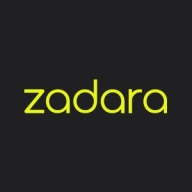


Zadara and Dell PowerStore are two storage solutions with distinct advantages and drawbacks. User reviews suggest that pricing and support favor Zadara, while Dell PowerStore is praised for its rich features and overall value.
Features: Zadara offers customizable storage solutions with flexibility, scalability, and integration ease. Dell PowerStore is known for its performance, automation capabilities, built-in intelligence, and advanced data services.
Room for Improvement:Zadara could improve speed, user-friendliness, and performance consistency. Dell PowerStore could enhance its upgrade process, support responsiveness, and ease the steep learning curve of its features.
Ease of Deployment and Customer Service:Zadara is praised for straightforward deployment and responsive customer service, making it easy to get up and running. Dell PowerStore's deployment is more complex due to its extensive capabilities, but it has detailed support documentation. Customer service experiences are mixed, with some finding Dell PowerStore support less responsive than Zadara's.
Pricing and ROI:Zadara is often highlighted for its cost-effectiveness and favorable return on investment, with a pricing model accessible for various business sizes. Dell PowerStore, despite higher initial setup costs, delivers solid ROI due to extensive features and reliable performance. The additional investment in Dell PowerStore is justified by long-term benefits and robust functionality.
By opting for the gold subscription every three years, you get a free upgrade to the latest controller release.
If you wait more than seven years to buy another one, you get a return on your investment.
If you purchase storage with 300 terabytes, you can easily achieve one petabyte of effective capacity.
It's been trouble-free the entire time, with very high performance, as it has been designed and built properly.
We have reduced infrastructure but the same performance.
The cost is not cheaper compared to AWS, and we have not seen the expected return on investment.
We also had one outage where a controller of one of the products had failed and had to be replaced on-site.
Customers always have their issues resolved promptly.
Pure has good storage.
If necessary, they will search for a specialist within their Dell network who we can approach with our questions.
I would rate the technical support of Dell PowerStore between nine and ten out of ten.
They're responsive, knowledgeable, and have a quick turnaround.
We lack adequate response times and a 24/7 service level agreement.
I rate the technical support from Zadara as nine out of ten.
It is highly scalable.
It is suitable for both medium-sized and enterprise businesses.
It hasn't broken down anytime in the last six to seven years, despite hurricanes, earthquakes, and power outages.
The solution's scalability is a ten out of ten.
The customer likely exceeds 20,000 users globally.
You can create as many tools as needed, providing scalability based on the use case.
Zadara is a fully-fledged platform, and our customers are happy with its use.
During the eight years, there have been no problems such as hardware failure or stopping.
I would rate the stability of the solution as a ten out of ten.
I would rate the stability of the product at seven out of ten.
When I removed all the cables, it failed over within five minutes.
There are no bugs or glitches and it doesn't crash or freeze.
I would rate the stability of Dell PowerStore as ten out of ten.
We would appreciate a built-in transparent failover in the next release to eliminate the need for a separate metro cluster.
I'm eagerly anticipating the roadmap's promise of introducing multiple controllers, which could significantly boost scalability and resilience.
We mostly rely on long-term releases. We don't need the most up-to-date features, but we need a reliable environment.
If you want to delve into where your I/Os are going, the reporting might need more in-depth information to make informed decisions.
In my organization, we have had to go through two weeks with no replication, which is not very handy for our production environment.
Something needs to be done with the caching to ensure that if some issue occurs, there needs to be an ability to disable caching during maintenance to make it static, safe, and good.
Adding AI capabilities could enhance the offering as well.
Maintenance can also be complicated, especially when deeper troubleshooting requires navigating the CLI and searching for logs.
While the prices may be higher than those of other vendors, we see it as a market leader with benefits.
The support can be a bit pricey, but the solution is more cost-effective than anything else out there.
I would give it a nine out of ten in terms of costliness.
Likely the cost is $400,000 whereas IBM may be $250,000.
Based on my experience, the cost of Dell PowerStore for around 500 GB of capacity is very competitive compared to any other platform in the market.
There's no need to pay for a license; it's all-inclusive.
The pricing is considered expensive.
Pure Storage has signature security technology, which cannot be deleted, even if you are an administrator.
The platform's robust features include excellent sustainability tracking, and a comprehensive dashboard offering insights into IOPS, bandwidth, performance, and virtual activities.
Its data compression feature is the best that we have ever seen.
The solution promotes data reduction, often meeting the compression ratio.
The PowerStore's compression ratio is even higher than the Unity system.
The deduplication part of the solution is valuable since, as a user, you get more space for less money.
The most valuable feature is its storage management capability.
Zadara's troubleshooting feature is very valuable for me.



Pure Storage FlashArray//X is the world’s first enterprise-class, all-NVMe flash storage array. It represents a new class of storage – shared accelerated storage, which is a term coined by Gartner – that delivers major breakthroughs in performance, simplicity, and consolidation.
Dell PowerStore stands out for its high performance, flexibility, and easy integration with VMware. It offers notable data compression and deduplication capabilities while providing powerful NVMe support and machine learning to optimize IT operations.
Dell PowerStore is designed to offer a comprehensive approach to IT infrastructure by enhancing performance and simplifying management. It is particularly suitable for companies that require scalable solutions to increase compute or capacity independently. Featuring built-in intelligence, PowerStore allows efficient storage consolidation and reduced footprint, while integration with CloudIQ enhances monitoring and analytics. However, there are areas for improvement, such as stability, enterprise features, and the user interface. Pricing is high, and support responsiveness needs attention. Organizations primarily use PowerStore for VMware environments, storage, and data protection, supporting high-performance databases and VMware workloads. It is utilized in data centers for disaster recovery and hybrid setups.
What are the key features of Dell PowerStore?In industries like IT, finance, and healthcare, Dell PowerStore supports efficient data management and enhances infrastructure performance. Organizations leverage it to manage extensive data, streamline virtualization processes, and facilitate migration from legacy systems, while integrating cloud and on-premises infrastructures for improved operations.
Zadara is a powerful enterprise-level storage solution whose design enables it to handle every aspect of a user’s data storage needs. It can be deployed in any location, using any protocol, and storing any data type that an organization requires. With Zadara, organizations can do everything that they were able to do with more traditional systems in a cheaper and more efficient way.
Zadara Benefits
Some of the ways that organizations can benefit by choosing to deploy Zadara include:
Zadara Features
File analytics. Organizations can leverage a powerful analytics package that can provide them with critical insights. These tools can help users sort through their data and make more informed data management decisions.
Reviews from Real Users
Zadara is a highly effective solution that stands out when compared to many of its competitors. Two major advantages it offers are its extensive suite of cloud solution integrations and its object storage capability.
Steve H., the chief technology officer at Pratum, writes, “One of the most valuable features is its integration with other cloud solutions. We have a presence within Amazon EC2 and we leverage computer instances there. Being able to integrate with computing, both locally within Zadara, as well as with other cloud vendors such as Amazon, is very helpful, while also being able to maintain extremely low latency between those connections.”
Mauro R., the CEO of Momit SRL, says, “The object storage feature is wonderful. With traditional storage, you have a cost per gigabyte that is extremely high or related to the number of disks. With Zadara Storage Cloud, you have a cost per gigabyte that you can cut and tailor to your needs independent of the number or size of the disks.”
We monitor all All-Flash Storage reviews to prevent fraudulent reviews and keep review quality high. We do not post reviews by company employees or direct competitors. We validate each review for authenticity via cross-reference with LinkedIn, and personal follow-up with the reviewer when necessary.